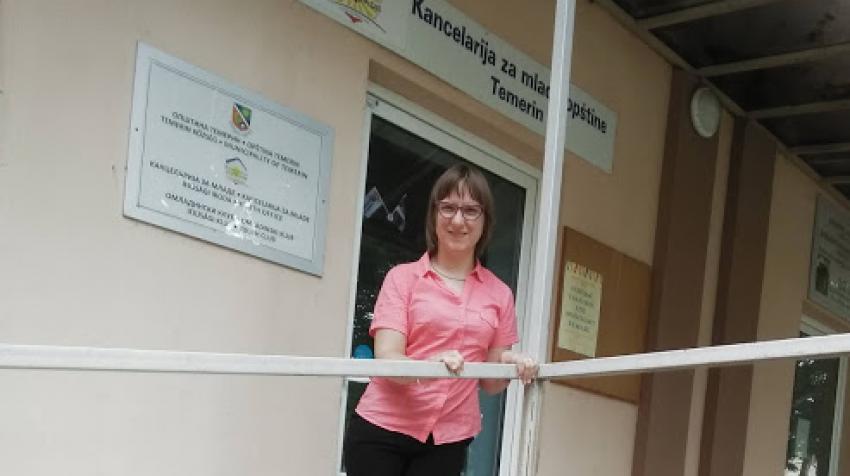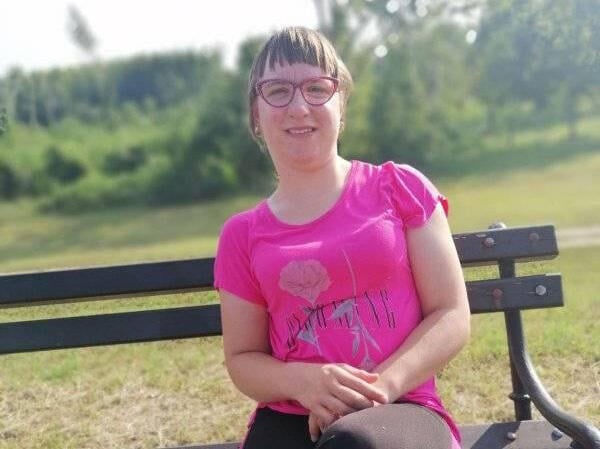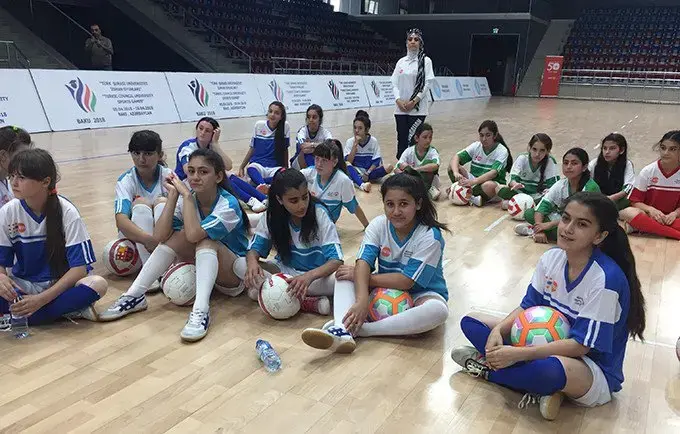Mónika Zsúnyi is 26 years old and lives in Temerin, Serbia. She holds a MSc degree in Applied Mathematics, she is engaged in 3D modeling and loves to read. Living with a cerebral palsy, she is also very active in promoting rights of people with disabilities in Serbia.
In Serbia, around 8 per cent of the total population — nearly 600,000 people, the majority of them women and girls — lives with some kind of disability. Yet they are far from being treated equally, especially when it comes to sexual and reproductive health.
One in five women and adolescent girls with disabilities in Serbia say they have difficulty accessing needed health services, according to a study carried out by UNFPA and Iz Kruga Vojvodina, an organization providing support to women with disabilities. One in four is unsatisfied with the sexual and reproductive health services they receive. One in seven has never had a gynaecological examination. And only one in four says they can freely and independently decide if they want children, or have their family’s support in doing so.
These multi-layered challenges are perpetuated by persistent negative stereotypes and prejudices in society, found even among health professionals. The COVID-19 pandemic has only exacerbated these difficulties. Women and young people with disabilities are nearly three times more likely than their non-disabled peers to experience sexual violence, and they are at risk of being left behind in the response to the COVID-19 crisis.

But women with disabilities in Serbia are leading the efforts to make the world more equitable and inclusive, by raising awareness about disability, setting standards for inclusivity and championing legislation to advance their rights.
“I am a woman with a disability. I live with cerebral palsy, I have difficulty speaking and moving. I try to be as independent as possible and live a full life. Sexual life is part of that,” says Monika, one of five women who are championing sexual and reproductive health.
With UNFPA support, women from the municipalities of Raska, Temerin, Uzice, Valjevo and Vranje are learning about reproductive rights, mapping barriers and creating local solutions. And the COVID-19 pandemic has not stopped them. They moved all of their activities online and joined forces with others in their communities to become advocates for change.
“Due to the COVID-19 pandemic we implemented almost the whole project online. I had to face the fear that no one in the online space would understand me because of my speech (it is easier to understand me when I speak face to face). At the same time, I had the opportunity to get acquainted with the technique and possibilities of online work, which has always been a challenge for me. I am very proud of the work of the women of our Association. They regularly got involved in trainings, regardless of the obligations they had beyond that. They were always present and open to talk about more sensitive topics,” shares Monika.
The women made great strides in less than a year marked with the COVID-19 pandemic worldwide: getting a hydraulic table for gynaecological check-ups back into service, made movies about the barriers they face and successfully engaged with local policy makers to offer and advocate for solutions to their problems during and after COVID-19 pandemics.
“These activities pushed me out of my comfort zone a bit, and broke down the prejudices I had about myself – that I am not capable of being a leader due to my difficulty in speaking,” Monika says. “Our life is not always easy, but it is always worth fighting for our rights.”



